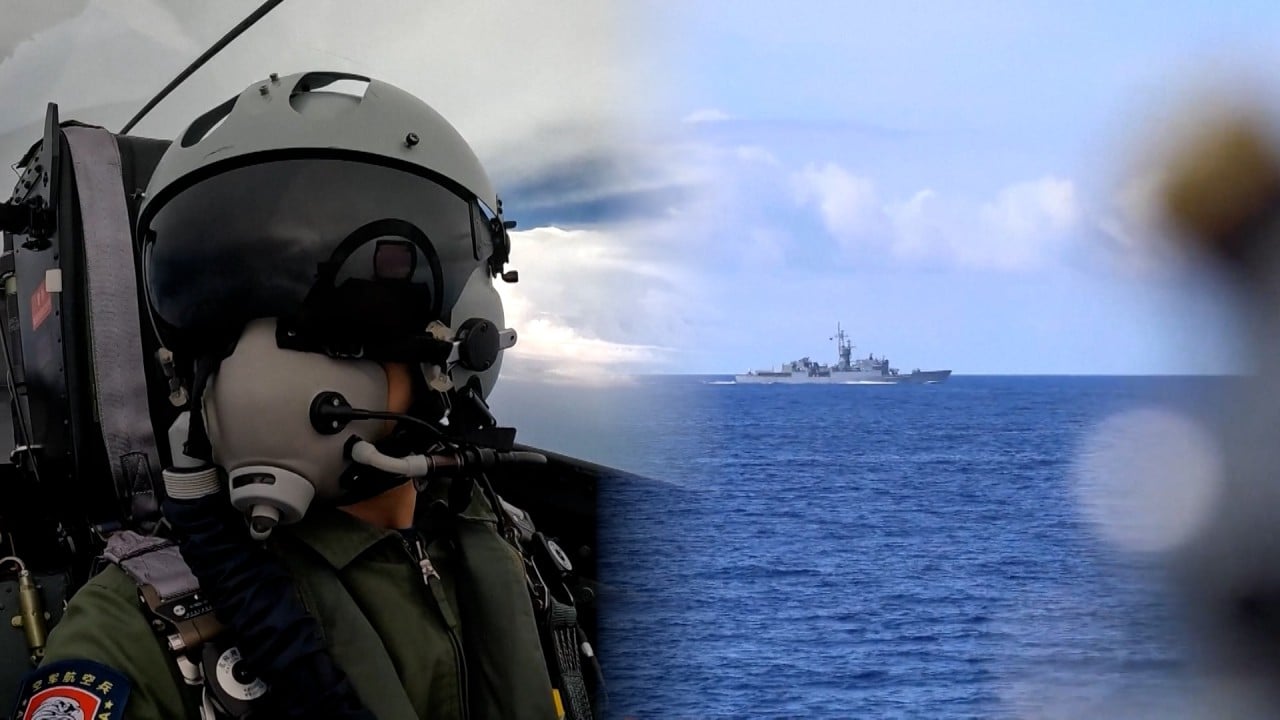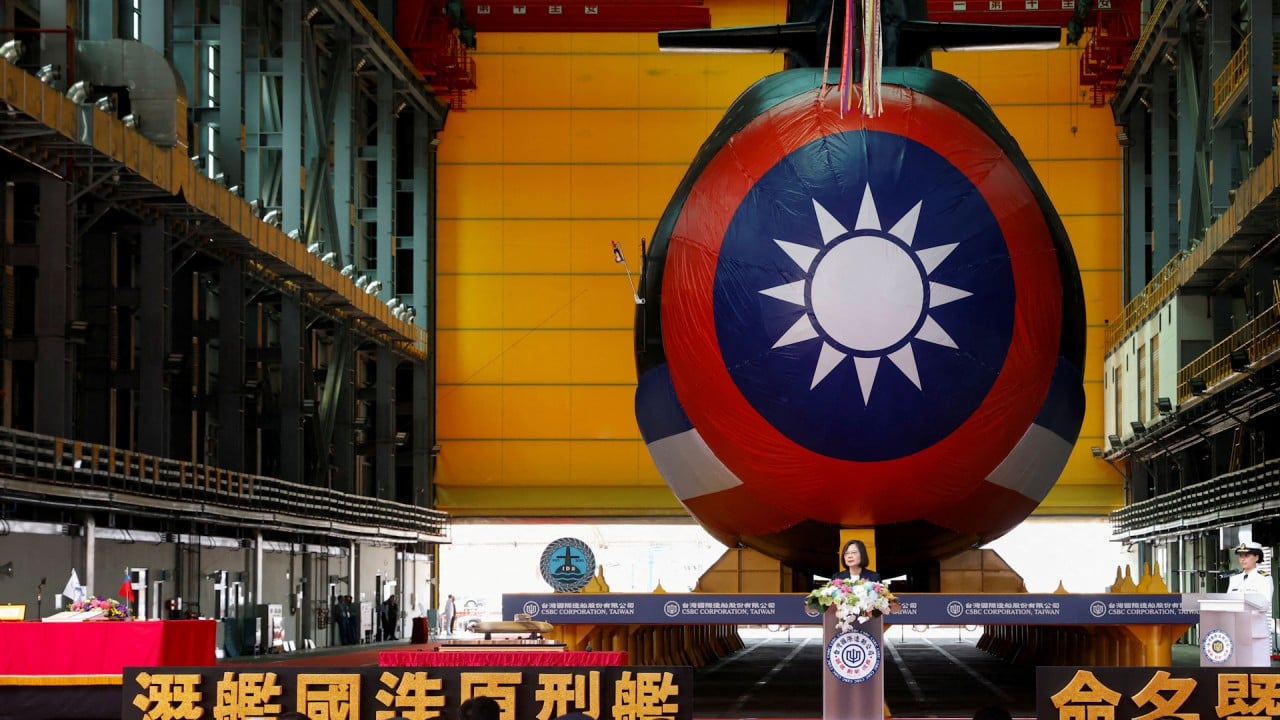
Taiwan president says ‘peace is the only option’, as Tsai Ing-wen eyes legacy
- In Taiwan National Day speech, the island’s president calls on Beijing to craft a ‘mutually acceptable foundation’ for a path to ‘peaceful coexistence’
- Conciliatory tone is an effort to ease hostilities before Tsai steps down next year, analysts say
The overture appeared to be a move to secure cross-strait peace as part of Tsai’s political legacy after she leaves office, analysts said. Taiwan has a two-term presidential limit.
Taiwan ramps up backup satellite network plans in island defence strategy
“Since 2016, my administration has kept its promises and maintained the status quo,” Tsai told a rally marking an uprising that began on October 10, 1911, which eventually ended the Qing dynasty on the mainland and ushered in the Republic of China (ROC), Taiwan’s official name.
In her inauguration speech in 2016, Tsai vowed to maintain the cross-strait status quo to secure regional peace. She also pledged to conduct cross-strait affairs in line with the island’s “Republic of China constitution” – an apparent effort to ease anxieties in Beijing that her independence-leaning Democratic Progressive Party (DPP) government would declare a formal split between the two sides of the Taiwan Strait.
Most countries, including the United States, do not recognise Taiwan as an independent state, but are opposed to any unilateral change of the cross-strait status quo by force.
Tsai said it was her duty to safeguard the island’s “sovereignty and the democratic and free way of life”, and to seek “peaceful coexistence, with free, unrestricted and unburdened interactions”, between people on both sides of the Taiwan Strait.
In response, China’s foreign ministry spokesman Wang Wenbin said: “The biggest threat to peace and stability in the Taiwan Strait is the DPP authorities’ stubborn position to pursue independence and their collusion with external forces to seek independence and make provocations.”
Analysts said Tsai’s speech was carefully worded to avoid provocation and offer peace overtures.
Results of mainland China’s trade probe could come on eve of Taiwan election
“This indicates that in the face of mounting military pressure from mainland China, Tsai opted for a safe transition as part of her legacy after she steps down,” said Wang Kung-yi, head of the Taiwan International Strategic Study Society, a Taipei think tank.
“It would spell trouble for the US too if any of Tsai’s comments led to further escalation of cross-strait tensions,” Wang said, adding that Washington is already dealing with wars in both Ukraine and Israel.
Chang Wu-ueh, a professor of China Studies at Tamkang University in New Taipei, said Tsai’s speech was full of conciliatory notes.
“She seeks to resolve the differences between the two sides, which is what she has been trying to do in the past seven years,” Chang said.
But Chang said it would be impossible for Beijing to respond with any positive gestures, referring to its insistance that the “one-China” principle must be the foundation for a resumption of cross-strait talks and exchanges.
“While her speech was unlikely to bring any obvious improvement in cross-strait ties, it was also less likely to provoke the mainland and worsen cross-strait ties further,” he said.



